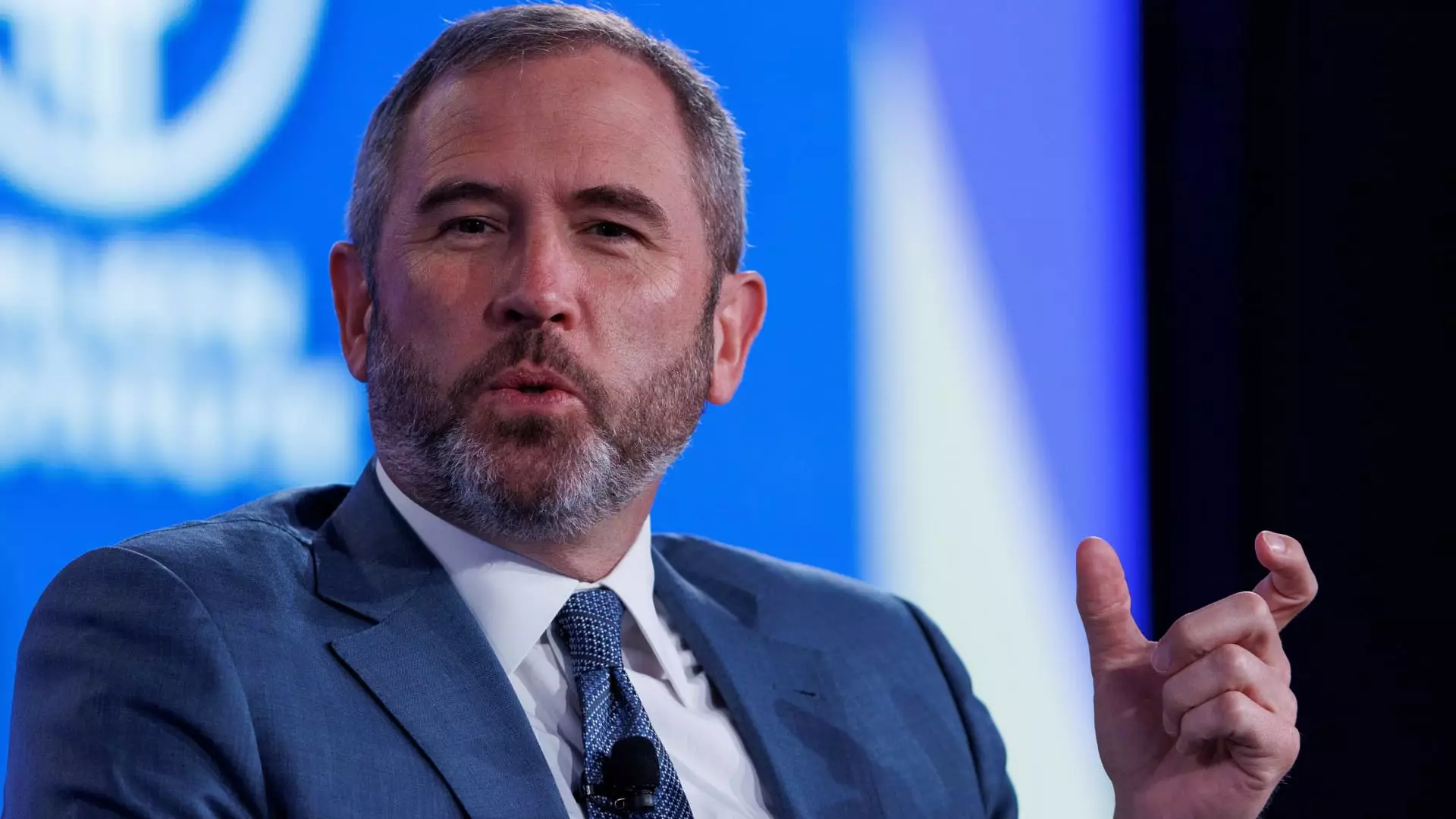In an unprecedented turning point for the cryptocurrency sphere, Ripple has emerged victorious in its long-standing legal battle against the Securities and Exchange Commission (SEC). Announced on a pivotal Wednesday, the SEC’s decision to withdraw its infamous lawsuit—initiated during Jay Clayton’s final day as SEC chair—underscores a significant shift in regulatory attitudes towards the burgeoning crypto industry. The legal saga, which has spanned four arduous years, revolved around accusations that Ripple raised an astonishing $1.3 billion through the sale of its XRP token without proper registration. This groundbreaking news has set off ripples (no pun intended) throughout the cryptocurrency community, positioning Ripple not just as a resilient player, but as a beacon of hope in a landscape that has often felt hostile to innovation.
Stuart Alderoty, Ripple’s Chief Legal Officer, aptly noted that this case could very well be a symbol of resilience against a regulatory regime aimed at quelling crypto’s revolutionary potential. With the SEC dropping its appeal, Ripple stands poised as a unique contender in a sector laden with uncertainties—a signal to both investors and innovators that the tides may finally be shifting in favor of aligned regulatory practices.
Ripple and XRP: A Historic Backdrop
XRP, one of the early entrants into the cryptocurrency market, was introduced in 2012 by the founders of Ripple as a utility token aimed at facilitating global transactions and banking operations. Unlike Bitcoin, which is often lauded purely as a digital gold, XRP was designed with specific functionalities in mind. With the SEC now acknowledging that XRP is “not necessarily a security,” this ruling creates a crucial precedent for the entire crypto industry, which has been held back by regulatory uncertainty.
Following the lawsuit’s dismissal, XRP witnessed an impressive surge of approximately 11%, highlighting the bullish sentiment that permeated the market post-announcement. This newfound optimism could act as a springboard for further technological advancements and broader adoption of cryptocurrencies by both retail and institutional investors.
The Broader Implications for the Crypto Sector
Ripple’s legal triumph does more than just vindicate one company; it signifies a broader shift in the regulatory narrative surrounding cryptocurrencies in the United States. Recent months have seen a series of crypto firms—such as Coinbase and Kraken—witness similar favorable outcomes, with investigations closed or lawsuits dismissed. These developments collectively suggest a diminishing adversarial stance from the SEC, indicating that engagement might replace confrontation as the agency’s new mantra.
Hester Peirce, the vocal advocate for crypto regulation within the SEC, has been pivotal in steering this new approach. Her leadership in the regulator’s recently-formed Crypto Task Force is indicative of a strategic pivot towards comprehensive dialogue with stakeholders, aiming to craft a structured regulatory framework that enables responsible innovation.
A Shifting Political Landscape: The Role of Trump and Future Prospects
The broader political landscape surrounding cryptocurrency is also undergoing a metamorphosis. The recent alignment between Ripple and the Trump administration—thanks to major contributions from the crypto sector to Trump’s campaign—has brought the conversation back to the forefront. With President Trump, now the Republican nominee, vocalizing his ambition to make the U.S. the “crypto capital of the planet,” the momentum is undoubtedly building.
Moving Forward with crypto-friendly policies could invigorate the United States’ position in the global digital asset competition. Trump’s executive order on digital assets, wherein he emphasized a preference for a regulatory environment conducive to growth and innovation, reflects a groundbreaking acceptance of cryptocurrencies as a vital component of future economies.
Unpacking Future Challenges and Opportunities
While the victory for Ripple and the subsequent thawing of regulatory rigidity signals a promising direction, it is essential to recognize the challenges that lie ahead. The SEC’s previous actions—such as imposing extensive subpoenas and stringently regulating business operations—highlight the precarious balance regulators will need to maintain between protecting consumers and fostering innovation.
Despite Ripple’s victory, the fight for clearer regulatory standards persists. The crypto community’s advocacy for fair and transparent regulations will play a critical role in ensuring that Ripple’s win transforms into a broader acceptance and understanding of cryptocurrencies, ultimately transforming the regulatory landscape to better accommodate the unique nature of this industry.
Ripple’s hard-won victory may not just be a win for the company alone, but could very well usher in a new era for cryptocurrency in the United States, where innovation is valued alongside consumer protection, and where the dream of a regulated yet thriving crypto ecosystem might just be on the horizon.

